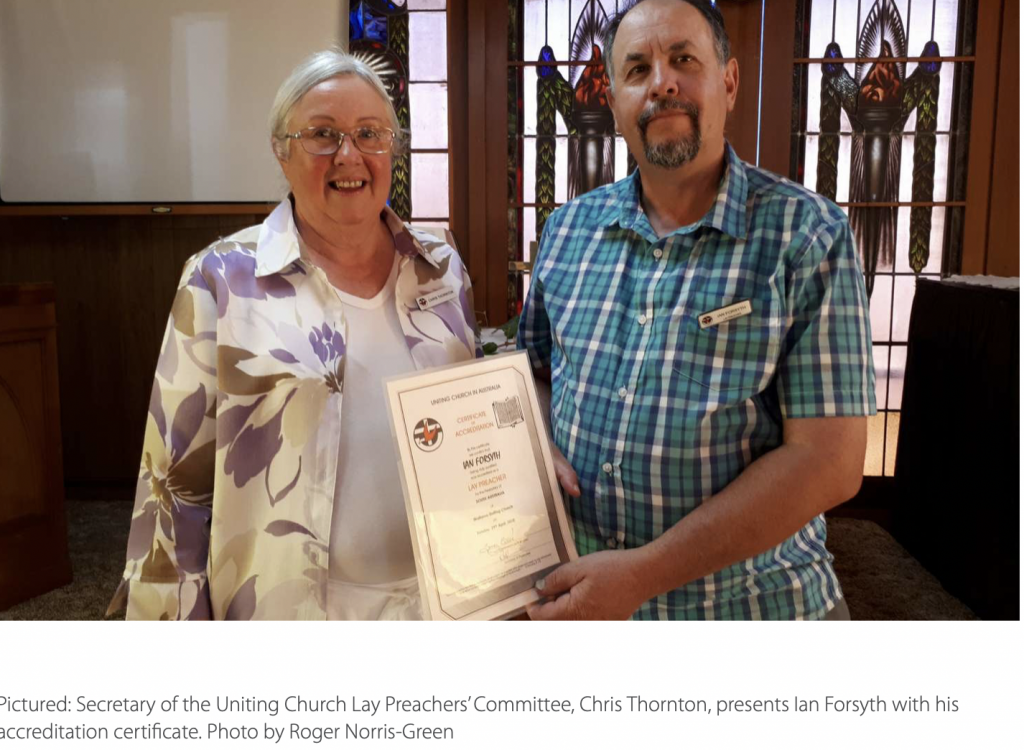Rights or wrongs – what can Australia offer humanity?
by Mark Woods (originally published in July 2023 in Anglican Diocese of Gippsland magazine)

In its original version, the Australian National Anthem declared, among other things, that “… we are young and free …”. *
Allowing the librettist the licence to refer to the age of the nation established de jure by the Constitution, can we extend that indulgence to the expression “free”? To the extent that being “free” denotes its citizens as having “freedoms,” Australia can hardly be so described. Why is that?
After all, we have a proud history of public action to stop governments from acting to curtail freedoms capriciously
or without regard to the public will. From participation in the Eureka Stockade, to public rejection of conscription in the Great War, to participation in Vietnam moratorium demonstrations, to tellingBob Hawke to forget the idea of an Australia Card – we, as a people, have rejected any sniff of authoritarianism.
Or have we? Our commitment to being “free” hasn’t prevented State Governments enacting laws giving a wide range of petty public officials, from gas meter inspectors to wildlife officers, the right to enter our properties – with criminal penalties for those who resist. We didn’t stop the enactment of laws that criminalised homosexuality, or suicide, or those assisting it. Nor have we stopped arbitrary detention for protesting, arrests for being drunk or fines for walking outdoors without a mask (even with a few hundred metres between yourself and another human being), if the chief health officer doesn’t like it.
Each of these examples highlights infringements of what are described as human rights. Sadly, in sociopolitical terms, they discriminate against those without power – typically, so many First Nations Australians, immigrants and refugees, and those with less advantage than the writer or most readers of this article.
The Australian Human Rights Commission puts it plainly:
Australia is the only liberal democracy in the world without a Human Rights Act or a Charter of Human Rights. To some extent, this is extraordinary. Australia has been bellicose in its championing of international human rights treaties and covenants. Three- quarters of a century ago, we were one of the proud founders of the United Nations, which adopted the Universal Declaration of Human Rights.
We signed the International Covenant on Civil and Political Rights in 1972, and ratified it over 40 years ago. We signed the International Covenant on Economic, Social and Cultural Rights in 1972 and ratified it three years later. Yet in 2023, neither have been comprehensively enacted into law in Australia. The same can be said of manifold other international instruments concerning the rights of women, Indigenous people, migrants, those with disabilities and (if you can believe it) children.
How should Christians react to this? While so much of our law has a solid Judaeo-Christian background (remember the snail in the ginger beer bottle, and the judicial extension of the concept of loving one’s neighbour to doing them no harm), Christianity and human rights have not always peacefully co-existed.
Max Stackhouse in the Cambridge Journal of Law and Religion puts it succinctly:
The historic relationship between Christianity and human rights is an ambiguous one. For hundreds of years the Christian Church actively promoted religious intolerance and persecuted those who failed to accept its moral values and customs. Many of these values and practices are today rejected as contrary to a human rights culture and moral decency.
The Australian Human Rights Commission has proposed an Australian Human Rights Act. Would such legislation make any difference? The Commission,mindful of the suspicion with which such proposals have been greeted in the past, describes its proposed model legislation as an “evolution, not a revolution.” It aspires to build on the experience of human rights legislation currently existing in Victoria, Queensland and the Australian Capital Territory.
Under the proposed legislation, government, administrators and public servants would be required to “consider human rights and to act in accordance with human rights when making policy
or decisions which affect individual lives.” Parliament would be required to “place greater priority on the human rights impacts of all new proposed laws.” Federal courts would be required to “interpret legislation, where possible, in a way which is consistent with human rights.”
Individuals (or groups) that have a complaint about human rights would have the option of seeking that the Commission facilitate a conciliated outcome – or to proceed to seek remedies in court. Those would include orders preventing government from taking an action that would breach human rights, or ordering government to pay compensation.
However, a key difference between the Commission-proposed legislation, and many other human rights protection documents around the world, is that Aus- tralian courts would not have the power to strike down laws made by Parliament that were incompatible with human rights. That follows the Commission’s stated aim of “dialogue” between the courts, gov- ernment and the Parliament, to evolve a more effective “human rights culture” in Australia moving forward.
Critics have and will ask the obvious question, “If we want to protect human rights, why stop the courts (whose task is to interpret the law) from striking downlaws inconsistent with human rights?”
After all, that’s one of the principal reasons for having a High Court in the first place. It can and does strike down laws it considers inconsistent with the Constitution. In other words, how are human rights protected from violation by a Parliament that has the unfettered legal power to do just that? What is the point of the proposed new law?
While many human rights can never be absolute (because they infringe on the human rights of others) the interpretation of the reasonableness and proportionality of interference has, in the liberal democratic tradition, always been a matter for the courts armed with the power to strike down. So why not in the Commis- sion’s proposal?
The answer lies, this writer suspects, in realpolitik. Various human rights advocates have, over the years since Federation, called for a Bill of Rights such as that found in the American constitution, and in the United Kingdom. Indeed, most recently, in 2002, 2017 and 2019, proposed legislation (by way of private members’ bills) to enact a Bill of Rights has beenbrought into the Australian Parliament. None of these bills have been comprehen- sively debated, let alone passed.
Those who oppose a Bill of Rights for Australia invariably argue that it is anti-democratic, because it reposes responsibility for determining the validity of a law in the hands of unelected judges. Parliament should be, so the argument goes, supreme in its ability to make laws. If the people don’t like the laws it makes, then they can replace its members at the next election. Moreover, activist judges with tenure cannot be controlled, and are not accountable to the people.
It is an argument that occupied the drafters of the Australian Constitution. As no less an authority than Sir Anthony Mason has observed:
Because the founders accepted, in confor- mity with prevailing English legal thinking, that the citizen’s rights are best left to the protection of the common law and because they were not concerned to protect the individual from oppression by majority will, the Constitution contains very little in the way of provisions guaranteeing new rights.
The Commission’s offering is, when all is said and done, a compromise it hopes will placate the political opponents of a Bill of Rights by pointing to the absence of any constitutional armageddon in Victoria, Queensland or the ACT since adoption of similar legislation by their parliaments.
It is, however, a poor substitute for enshrining human rights to the extent that laws overriding them can be struck down by independent judiciary. It is that protection, in the view of many human rights advocates, that Australians deserve.
Christians should join the debate.
________________________________________________________
Mark Woods is a Gippsland lawyer, Chairman of Committees of the Gippsland Diocese and Director of the Diocesan Corporation. He chairs the International Bar Association’s Access to Justice Advisory Board. The opinions expressed here are his own.
* The official wording change to ‘one and free’ was made out of respect for the venerability of First Nations cultures.
The Commission, mindful of the suspicion with
which such proposals have been greeted in the past,
describes its proposed model legislation as
an “evolution, not a revolution.” It aspires to build on the experience of
human rights legislation currently existing in
Victoria, Queensland and the Australian Capital Territory.

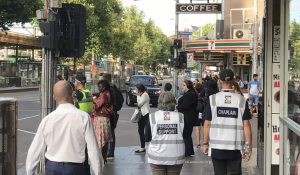
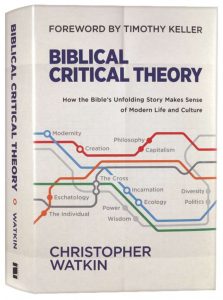
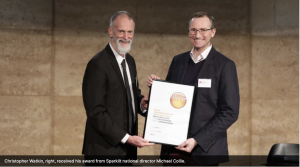
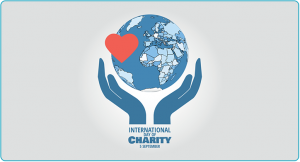 September 5th. UN International Day of Charity.
September 5th. UN International Day of Charity.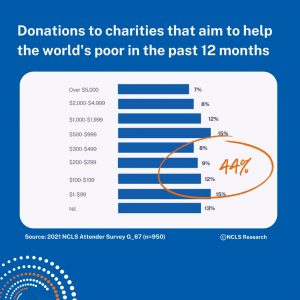
 Mother Teresa
Mother Teresa
